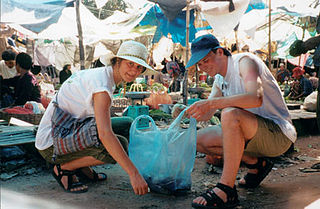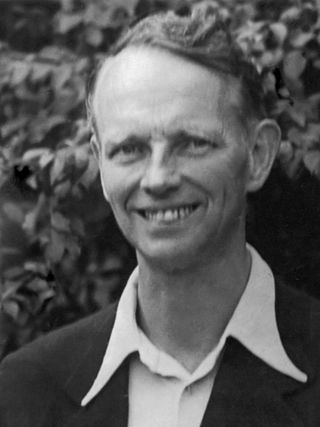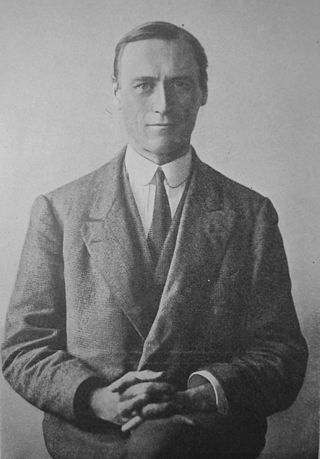The Fellowship of Reconciliation is the name used by a number of religious nonviolent organizations, particularly in English-speaking countries. They are linked by affiliation to the International Fellowship of Reconciliation (IFOR).
The International Fellowship of Reconciliation (IFOR) is a non-governmental organization founded in 1914 in response to the horrors of war in Europe. Today IFOR counts 71 branches, groups and affiliates in 48 countries on all continents. IFOR members promote nonviolence, human rights and reconciliation through public education efforts, training programs and campaigns. The IFOR International Secretariat in Utrecht, Netherlands facilitates communication among IFOR members, links branches to capacity building resources, provides training in gender-sensitive nonviolence through the Women Peacemakers Program, and helps coordinate international campaigns, delegations and urgent actions. IFOR has ECOSOC status at the United Nations.

Bilthoven is a village in the Dutch province of Utrecht. It is a part of the municipality of De Bilt. It has a railway station with connections to Utrecht, Amersfoort and Baarn. It is home to the Netherlands National Institute for Public Health and the Environment, RIVM; and to the Union Mundial pro Interlingua, UMI, which promotes Interlingua internationally.

Service Civil International (SCI) is an international peace organisation, founded by Swiss pacifist Pierre Cérésole in the aftermath of World War I to foster understanding and a culture of peace between people from different countries. Since 1920 SCI has organised international volunteering projects in the form of workcamps and has expanded to have branches in 40 countries, as well as partner organisations who help run the projects.

Cornelis "Kees" Boeke was a Dutch reformist educator, Quaker missionary and pacifist. He is best known for his popular essay/book Cosmic View (1957) which presents a seminal view of the universe, from the galactic to the microscopic scale, and which inspired several films.

Helene Stöcker was a German feminist, pacifist and gender activist. She successfully campaigned to keep same sex relationships between women legal, but she was unsuccessful in her campaign to legalise abortion. She was a pacifist in Germany and joined the Deutsche Friedensgesellschaft. As war emerged, she fled to Norway. As Norway was invaded, she moved to Japan and emigrated to America in 1942.

War Resisters' International (WRI), headquartered in London, is an international anti-war organisation with members and affiliates in over 40 countries.
José Brocca was a pacifist and humanitarian of the Spanish Civil War, who allied himself with the Republicans but sought nonviolent ways of resisting the Nationalist rebels.

Friedrich Siegmund-Schultze was a German academic working in theology, social pedagogy and social ethics, as well as a pioneer of peace movements.
Switzerland Yearly Meeting of the Religious Society of Friends, or simply Switzerland Yearly Meeting or SYM, is the organizing body for Quaker groups and meetings in Switzerland.

Pierre Cérésole or Ceresole was a Swiss pacifist, remembered for founding the peace organisation Service Civil International (SCI) and the international workcamp movement.

International Voluntary Service (IVS), formerly International Voluntary Service for Peace (IVSP), is the British branch of the Service Civil International (SCI). Founded in 1931, IVS promotes peace through volunteering, both in the United Kingdom and other countries.

Henry Theodore Hodgkin was a medical doctor and a British Quaker missionary who, in the course of his 55-year life, co-founded the West China Union University in Chengdu, co-founded and led the first Christian pacifist movement, the International Fellowship of Reconciliation, and founded the Pendle Hill Quaker meeting and training center, in Wallingford, Pennsylvania.
Lilian Sinclair Stevenson was a Christian peace activist, historiographer and one of the founders of the International Fellowship of Reconciliation.

Hélène Monastier was a Swiss peace activist and teacher in Lausanne.

A workcamp in international volunteering, is an arrangement where groups of volunteers from different countries work and live together as a team on a short-term basis and for a not-for-profit cause, usually for one to three weeks. Workcamps are considered one of the most important types of international volunteering programs. They were first introduced in 1920 as a way of bringing people together for increased international understanding and peace reconciliation efforts.

Beatrice Boeke-Cadbury was an English-Dutch social activist, educator, and Quaker missionary. For her work educating and hiding Jewish children during the Holocaust, she was posthumously recognized as one of the Righteous Among the Nations.
Emma Thomas (1872–1960) was an English schoolteacher and member of the Society of Friends. She taught in London County Council schools. She is best known for her later role in founding the International Fellowship School in Switzerland (1923–1936) for the Fellowship of Reconciliation, and her work in Perugia from the 1940s with Aldo Capitini.












